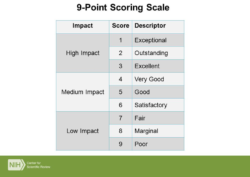 Request for Grant Proposals
Request for Grant Proposals
The mission of the Smith-Magenis Research Foundation is to support research to improve the knowledge and understanding of Smith-Magenis Syndrome (SMS) so that viable therapeutic options can be developed in order to improve the quality of life of those with SMS.
Development of Therapies for SMS
To achieve our mission we are starting an annual grant program to fund novel but scientifically sound ideas from new and experienced researchers interested in SMS. Our goal is to create a consistent stream of available funds to facilitate the SMS research community and foster collaboration and stimulate intellectual discussion as we move the field forward towards a therapeutic intervention.
Research Priorities To Date:
- Gain increased understanding of RAI-1 and its role in normal brain development
- Re-establish normal cellular RAI-1 expression
- Gene therapy and/or small molecule models
- Neurobiology of cognitive and maladaptive behavior in SMS
- Development of novel therapeutic approaches to SMS (we encourage innovation)
Guidelines:
- $ 75,000 available in direct costs. Indirect costs of up to 8% permitted.
- Investigators need to have a faculty appointment of Instructor level or higher to serve as a principal investigator
- Brief concept paper required for initial review for scientific merit and project feasibility
- Full proposal will be requested after LOI reviewed if found suitable for further consideration
- Concept paper and grant proposals peer reviewed by SMRF scientific advisory board (SAP) utilizing a standardized grading scale
- Funding beyond one year will be considered based on results and potential and will be at the discretion of the SMSRF Board.
Deadlines:
- Concept paper due July 16
- Full proposal due September 3
- All correspondence should be sent to Christopher M. Iannuzzi, MD at cmiannuzzi@msn.com
Concept Paper Guidelines:
- A cover letter written by the principal investigator. The letter should include a brief introduction to the investigator(s), the goals of their research, and why they believe this project is a fit with The SMS Research Foundation and its mission.
- Project title
- Length of study (Maximum 1 year – extension can be considered based on scientific merit at discretion of SMSRF Board)
- Estimated requested amount (Non-itemized. Limit $ 81, 000 includes direct/indirect)
- Estimated total cost (This may be more than the requested amount if other funds will be used to complete all objectives.)
- Number and type of subjects/animals to be studied
- Impact or expected outcomes: Describe how results will benefit the SMS scientific community and translate into a clinical/therapeutic benefit to those individuals with SMS. (2500 characters or about 1/4 page)
- Background information: Describe any background information available on the topic, prior studies, need for this study, etc. (2500 characters or about 1/4 page)
- Hypothesis (es) to be tested. (2500 characters or about 1/4 page)
- Study design: Identify the type of design – randomized, observational, proof of concept, etc.
- Project protocol: Describe the basic design of the study, including information about study groups, measures and sample collection, time points of collection, and primary outcomes to be evaluated. This is the most important section and should be the primary focus of the concept paper. (7500 characters or about 1.5 pages)
- There is a place to add additional information if an explanation is required for specific items in the concept paper.
SMS Research Foundation (SMRF): Full Proposal Guidelines:
- Project Information:
- A cover letter, signed by a senior administrative official of the applying organization, briefly describing the applicant and endorsing the project.
- Synopsis/abstract of the proposal, including hypotheses, methods, and expected outcomes.
- Hypothesis(es) and objective(s)
- Proposal narrative (Limit 10 pages, double spaced). This is the main source of proposal information and should include:
- Goals, objectives, and methods to be used
- Description of evaluation measures in place or planned to assess project results and outcomes
- Expected impact of the project to the SMS community
- Timeline of events.
- Outcomes/measures to be used
- Plan for acknowledging Foundation support
- Team Information:
- List of team members and contact information
- Uploaded biosketches of principal investigator and significant support staff
- Novice researchers should include their mentor in the team list and provide a biosketch for the mentor
- Budget:
- Uploaded line item project budget. Indirect costs are limited to 8%.
- Salaries: Percentage of time applied to grant for PI and Co-PI
- Plan for project funding, including a description of any current or requested funding from other major donors.
- Budget summary including description of duties of investigator and major staff
- Organization Information:
- Pre-award contact information (Development officer)
- Uploaded brief description of applying organization, its current programs, services, and population(s) served
- Uploaded IRS documentation indicating that the applying organization is tax exempt and is not a private foundation (for non-government agencies)
- Other Documents:
- Uploaded statement of collaborations with other institutions (sub-contracts, etc.)
- Uploaded Scientific references
- Optional items (uploaded)
- Letters of support from organizations with key input or interest in the project
- Relevant news articles
- Organization’s annual report
- Organization newsletters
Peer Review Process
Scoring of each application is based on the NIH 9 point scoring scale (1=exceptional; 9=poor) and the same scale is used for criterion scores and overall impact scores.
Criterion:
- Significance
- Investigator
- Innovation
- Approach
- Environment
Overall Impact:
SMS Research Foundation
P.O. Box 661
Georgetown, CT 06829-0661
Tel: (203) 450-9022


